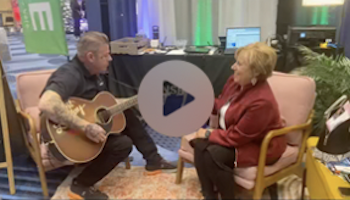When I arrived at my destination to conduct a recent in-person training, Sui was in the parking spot next to me. She greeted me warmly and stood at my hatchback while I unloaded my cart, lunch, flip chart, and other materials.
As I was checking to make sure that I had removed all the right things – and left my workout clothes, grocery bags, and other personal items in the car – Sui was overloaded holding all of my aforementioned items. When I said strongly, “Sui, thank you, but you can’t carry all of that! Please give some of it back to me!” Sui graciously said, “I want to make your morning easier because your class is so helpful to me.”
What a way to start my morning! I mean, the assistance in getting from my car to the building was truly a help, and the compliment gave me even more energy and validation. I went from “happy to be here” to “THRILLED to be here!” Sui acted as though she didn’t have her own pressing assignments, and she stayed with me and assisted by setting up the room for all the participants.
As we were chatting, I said, “Sui, what in particular have you found valuable. What has stuck with you?” I was curious since we were about to start module four of a 12-module leadership program. Sui was quick to answer. She said, “Oh, when you said that we are paid not for the information and knowledge in our brain, but for how we act on that information.”
I had told the managers, as I tell many groups, that while it’s critical for employees at all levels to have knowledge, education, and training – that alone is not enough. If managers have deep knowledge in their field of expertise, but they don’t use that knowledge to impact projects, ask insightful questions, and suggest alternatives, then truly that knowledge is of little value to the organization. I continued by saying that some of the time employees are included in a meeting to gain useful information, but most of the time when an employee or leader is included it is because the organization is hopeful that the person can and will contribute in a meaningful way.
Sui said she had never considered that and now, as a result, she is contributing more. She also said that she can see how her contributions are actually making a difference. This is a “win” for Sui, and a “win” for her organization as well!
And what I found most interesting about this whole encounter with Sui is that this key takeaway for her may not have been as significant for all of the other participants. But hopefully each one of them experiences their own aha moments, and I hope they will share them with me!





0 Comments